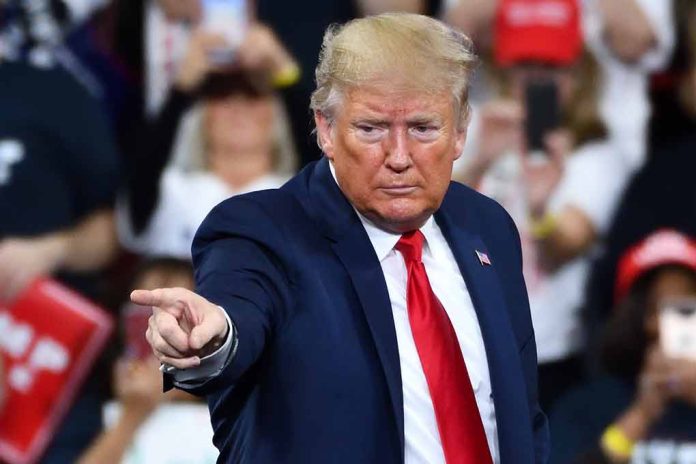
President-elect Donald Trump’s push to reclaim the Panama Canal is gathering momentum, invoking concerns over international influence and strategic control.
At a Glance
- Rep. Dusty Johnson introduced a bill for the U.S. to negotiate reacquiring the Panama Canal.
- The initiative reflects Trump’s “America First” policy, addressing foreign control issues.
- Concerns over China’s influence on the canal fuel the legislative push.
- The proposal includes the option of acquiring the canal for a symbolic $1.
Legislative Foundations and Proposals
Rep. Dusty Johnson has proposed the “Panama Canal Repurchase Act,” empowering the President to negotiate terms for acquiring the Panama Canal. The bill suggests a symbolic purchase price of $1. Johnson argues the canal’s control by foreign powers, particularly China’s involvement, presents a threat. This move aligns with Trump’s strategic objectives to reduce foreign influence on key infrastructure. An obligation for the President to report to Congress within 180 days on progress, challenges, and outcomes highlights the seriousness of the proposal.
The push gained traction amid rising concerns about Panama’s costly fees for U.S. shipping, criticized by Trump as rooted in the 1977 Torrijos-Carter Treaties. These treaties transferred canal control to Panama, a decision Trump has labeled as unwise. While some Republicans remain skeptical, including Senate Armed Services Committee Chair Roger Wicker, the momentum reflects a strategic repositioning reflective of wider foreign policy goals.
US President-elect Donald Trump declined to rule out military or economic action as part of his desire to have the US take back control of the Panama Canal and acquire the Danish territory of Greenland https://t.co/sLjgWCzZTH pic.twitter.com/0slbojDHLf
— Reuters (@Reuters) January 8, 2025
Strategic Implications and Concerns
Trump, acknowledging the Panama Canal as “vital”, expresses willingness to consider military force to ensure its return. The canal, vital since completion in 1914 as a U.S. project, serves as a maritime shortcut crucial for international shipping. China’s influence in its operations has raised alarms.
Dusty Johnson emphasizes, “America must project strength abroad – owning and operating the Panama Canal might be an important step towards a stronger America and a more secure globe.”
The undercurrent is reclaiming strategic assets to counteract foreign influence in essential global commerce domains.
Though Trump’s interest in repurchasing the Panama Canal faces international skepticism, with Denmark expressing shock over similar past suggestions involving Greenland, U.S. policymakers argue the move strengthens national security. The canal’s strategic position as a link between the Atlantic and Pacific Oceans enhances its significance. Pronouncements by Trump about potentially renaming the Gulf of Mexico as “Gulf of America” echo the administration’s broader assertiveness about U.S. territorial naming rights.
Political and Global Reactions
Global reactions to Trump’s initiative have been mixed, with strong responses from international leaders and domestic skepticism. The canal represents a significant historical juncture controlled by the U.S. until the treaties of 1977. Acquiring it back reflects America’s strategic interests in controlling key trade routes. The legislative push led by Trump and Johnson emphasizes redefining strategic assets in favor of U.S. interests. Potential ramifications include heightened geopolitical tensions but may also fortify U.S. defense capabilities.
Despite the controversial notion, the agenda catalyzes discussions concerning U.S. positioning in global infrastructures and securing national shipping lanes. As initiatives unfold, the proposal stands as a testament to Trump’s strategic and assertive foreign policy ethos.


